The prospect of glyphosate being banned in Europe now looms large, following yet another failed attempt to extend its licence.
On Monday, a Commission proposal to extend the licence for 18 months failed, despite receiving the backing of 21 countries, including Ireland. It’s uncertain what the next step will be, as the spotlight increasingly shines on this issue.
It has become a battleground for all sorts of political and ecological agendas, to the bewilderment of most farmers, who consider glyphosate to be one of the least harmful of pesticides when used properly. Indeed, glyphosate is commonly used not just by farmers, but by gardeners and householders to keep paths clean of weeds. Yet, its licence will expire in less than a month, triggering events that could have significant implications.
Why is this an issue?
Glyphosate has been in common use since 1974, when introduced by Monsanto under the Roundup product name. A wide range of generic glyphosates are available now, such as Mizr, Glyfos, Gallup and Pride. A total of 169 separate products listed on Ireland’s Pesticides Control Service website contain glyphosate – most contain only glyphosate.
It was a study published by the World Health Organisation that classified glyphosate as being linked to cancer that led to unrest around its licence in the EU.
Many substances have been similarly classified without any effect on their everyday usage – from floor polish to cigarettes to alcohol. Glyphosate is ranked quite low in terms of its carcinogenic properties – around as toxic as coffee.
It could be the link between glyphosate and Monsanto that has had a hand in its relicensing becoming so contentious. Monsanto is synonymous with genetically modified crops – particularly the Roundup-ready maize and soya crops that are resistant to glyphosate. This means the product can be used as a weed-killer in the growing crop. These have become the dominant varieties in North and South America, but their use is prohibited in the EU. In Ireland, trial plots of Roundup-ready sugar beet were vandalised in the 1990s in Cork, Wexford and Carlow.
Of course, a wide variety of chemical companies produce glyphosate now, but the product and its maker are inextricably linked in the public mind, much like
“Hoover” or “Styrofoam”.
How the decisions will be made
PAFF ministers’ representatives
Ultimately, the decision rests with the Ministers of the 28 member states. They are represented by nominated and mandated civil servants on a standing committee. The relevant committee is called Plant, Animals, Food and Feed (PAFF). Some countries nominate a representative from their department of agriculture, some from environment, some health. The situation is further confused by the arcane “qualified majority” voting system – this has a requirement of both 55% of the voting countries, and 65% of the EU population.
In Monday’s vote, tiny Malta’s vote against extending the licence for glyphosate was of little impact, but the fact that Germany, France and Italy were among the seven abstentions meant the 65% population threshold was not met.
The parliament
The EU parliament, comprised of MEPs elected by member states, has an advisory role, but parliamentary opposition to any matter is significant. In March, the environment committee of the parliament passed a motion calling for no “on the nod” automatic renewal of the licence for glyphosate. This committee has a lot of Green and left-wing MEPs, and heavily backed this stance, with 36 in favour, 18 abstentions, and only six opposing.
The following month, the full parliament considered the issue, and recommended a renewal for seven years, rather than the current 10-year licence, in conjunction with an authoritative EU investigation of the dangers of glyphosate. The Health Commissioner, a Lithuanian socialist named Vytenis Andriukaitis, was credited with a leading role in getting a broad backing for this compromise position. The Agriculture committee’s many pro-farming MEPs must also be credited.
The politics
As ever in Europe, if neither Germany nor France back a proposal, it flounders. The French Minister with jurisdiction is Ségolène Royal, former presidential candidate and former partner of current president François Hollande. She was one of the first ministers to express concern about glyphosate. The German minister is Barbara Hendricks. She has abstained, despite her prime minister Angela Merkel’s support for renewal. Hendricks and Merkel are from different parties within the coalition government. Both France and Germany face elections next year, and glyphosate is now a political football.
The prospects
It’s unlikely that we are facing a ban on Roundup anytime soon. A failure to act before the end of June deadline would not be final – product could be sold for a further six months, and used for a subsequent two years.
The chemical companies are threatening legal action, which may concentrate minds.
The Commission still has a card to play. It can act on scientific advice and renew the licence as a last resort. The whole affair is a mirror image of the EU’s frequently ridiculous approach to approval of GM crops being allowed to be imported into Europe for animal feed. The scientists recommend, the politicians prevaricate, and the Commission eventually steps in. It’s no way to run Europe.
Read more
Full coverage: Glyphosate
The prospect of glyphosate being banned in Europe now looms large, following yet another failed attempt to extend its licence.
On Monday, a Commission proposal to extend the licence for 18 months failed, despite receiving the backing of 21 countries, including Ireland. It’s uncertain what the next step will be, as the spotlight increasingly shines on this issue.
It has become a battleground for all sorts of political and ecological agendas, to the bewilderment of most farmers, who consider glyphosate to be one of the least harmful of pesticides when used properly. Indeed, glyphosate is commonly used not just by farmers, but by gardeners and householders to keep paths clean of weeds. Yet, its licence will expire in less than a month, triggering events that could have significant implications.
Why is this an issue?
Glyphosate has been in common use since 1974, when introduced by Monsanto under the Roundup product name. A wide range of generic glyphosates are available now, such as Mizr, Glyfos, Gallup and Pride. A total of 169 separate products listed on Ireland’s Pesticides Control Service website contain glyphosate – most contain only glyphosate.
It was a study published by the World Health Organisation that classified glyphosate as being linked to cancer that led to unrest around its licence in the EU.
Many substances have been similarly classified without any effect on their everyday usage – from floor polish to cigarettes to alcohol. Glyphosate is ranked quite low in terms of its carcinogenic properties – around as toxic as coffee.
It could be the link between glyphosate and Monsanto that has had a hand in its relicensing becoming so contentious. Monsanto is synonymous with genetically modified crops – particularly the Roundup-ready maize and soya crops that are resistant to glyphosate. This means the product can be used as a weed-killer in the growing crop. These have become the dominant varieties in North and South America, but their use is prohibited in the EU. In Ireland, trial plots of Roundup-ready sugar beet were vandalised in the 1990s in Cork, Wexford and Carlow.
Of course, a wide variety of chemical companies produce glyphosate now, but the product and its maker are inextricably linked in the public mind, much like
“Hoover” or “Styrofoam”.
How the decisions will be made
PAFF ministers’ representatives
Ultimately, the decision rests with the Ministers of the 28 member states. They are represented by nominated and mandated civil servants on a standing committee. The relevant committee is called Plant, Animals, Food and Feed (PAFF). Some countries nominate a representative from their department of agriculture, some from environment, some health. The situation is further confused by the arcane “qualified majority” voting system – this has a requirement of both 55% of the voting countries, and 65% of the EU population.
In Monday’s vote, tiny Malta’s vote against extending the licence for glyphosate was of little impact, but the fact that Germany, France and Italy were among the seven abstentions meant the 65% population threshold was not met.
The parliament
The EU parliament, comprised of MEPs elected by member states, has an advisory role, but parliamentary opposition to any matter is significant. In March, the environment committee of the parliament passed a motion calling for no “on the nod” automatic renewal of the licence for glyphosate. This committee has a lot of Green and left-wing MEPs, and heavily backed this stance, with 36 in favour, 18 abstentions, and only six opposing.
The following month, the full parliament considered the issue, and recommended a renewal for seven years, rather than the current 10-year licence, in conjunction with an authoritative EU investigation of the dangers of glyphosate. The Health Commissioner, a Lithuanian socialist named Vytenis Andriukaitis, was credited with a leading role in getting a broad backing for this compromise position. The Agriculture committee’s many pro-farming MEPs must also be credited.
The politics
As ever in Europe, if neither Germany nor France back a proposal, it flounders. The French Minister with jurisdiction is Ségolène Royal, former presidential candidate and former partner of current president François Hollande. She was one of the first ministers to express concern about glyphosate. The German minister is Barbara Hendricks. She has abstained, despite her prime minister Angela Merkel’s support for renewal. Hendricks and Merkel are from different parties within the coalition government. Both France and Germany face elections next year, and glyphosate is now a political football.
The prospects
It’s unlikely that we are facing a ban on Roundup anytime soon. A failure to act before the end of June deadline would not be final – product could be sold for a further six months, and used for a subsequent two years.
The chemical companies are threatening legal action, which may concentrate minds.
The Commission still has a card to play. It can act on scientific advice and renew the licence as a last resort. The whole affair is a mirror image of the EU’s frequently ridiculous approach to approval of GM crops being allowed to be imported into Europe for animal feed. The scientists recommend, the politicians prevaricate, and the Commission eventually steps in. It’s no way to run Europe.
Read more
Full coverage: Glyphosate



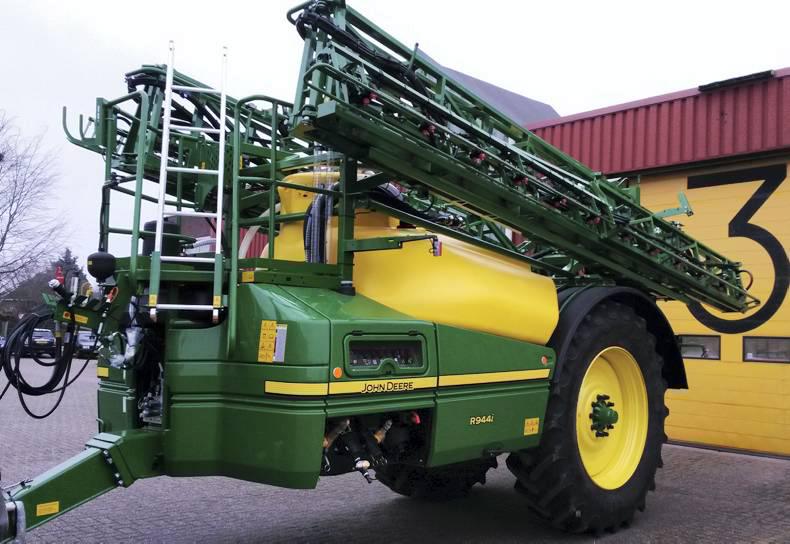
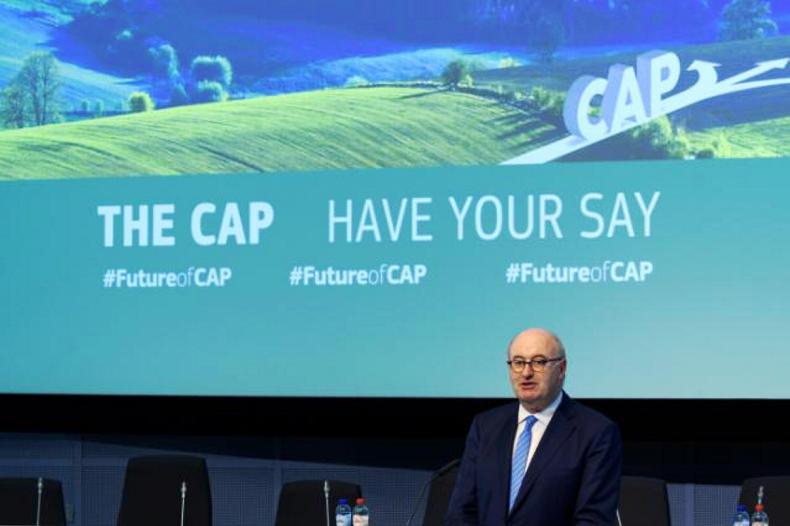

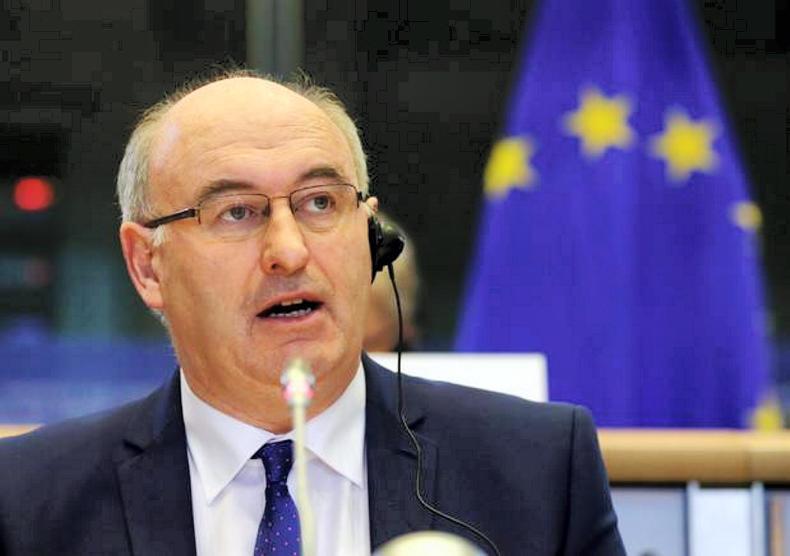
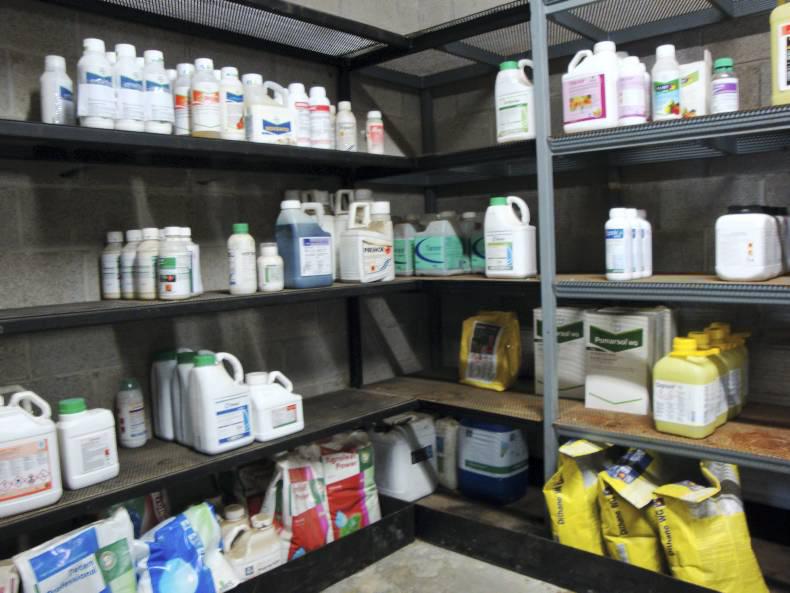
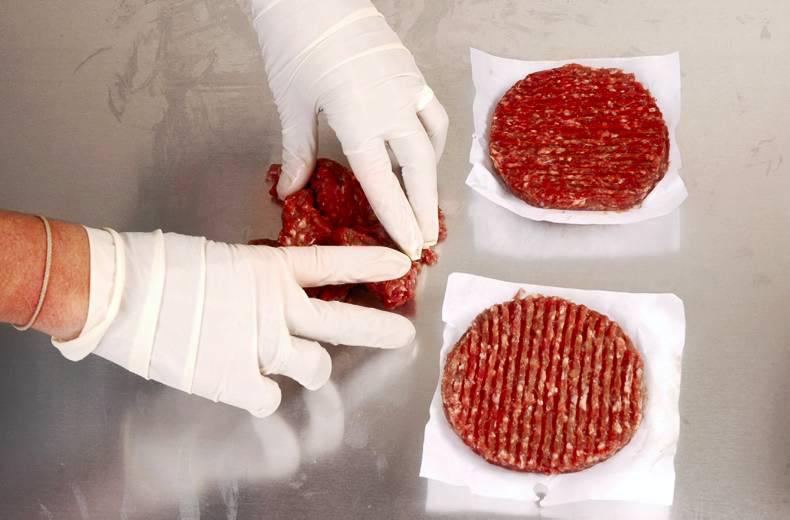
SHARING OPTIONS